The Best Teacher in Radiology
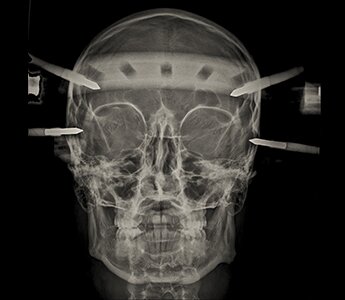
Radiograph of a patient in a “halo” fixation device designed to stabilize the skull while a spine fracture heals. It’s also a good representation of what it feels like to have everything you need to learn during a radiology residency drilled into your skull.
I have vacation next week, so yesterday was effectively the final day of my residency in diagnostic radiology. I passed my oral examinations in May, so come July first I’ll be a board certified radiologist on day one of my fellowship in musculoskeletal imaging.
I wish that I felt like a great celebration was in order, or that I couldn’t stop smiling; but the truth is that a best I have a sense of anticlimax, and at worst I feel like I swallowed something vaguely distasteful. But the crappy day I had was probably as, if not a more, important a part of the learning process as learning how to diagnose disease on CT scans. This morning reminded me of the kind of person that medicine can turn you into, or at least allow you to be, if you don’t fight it.
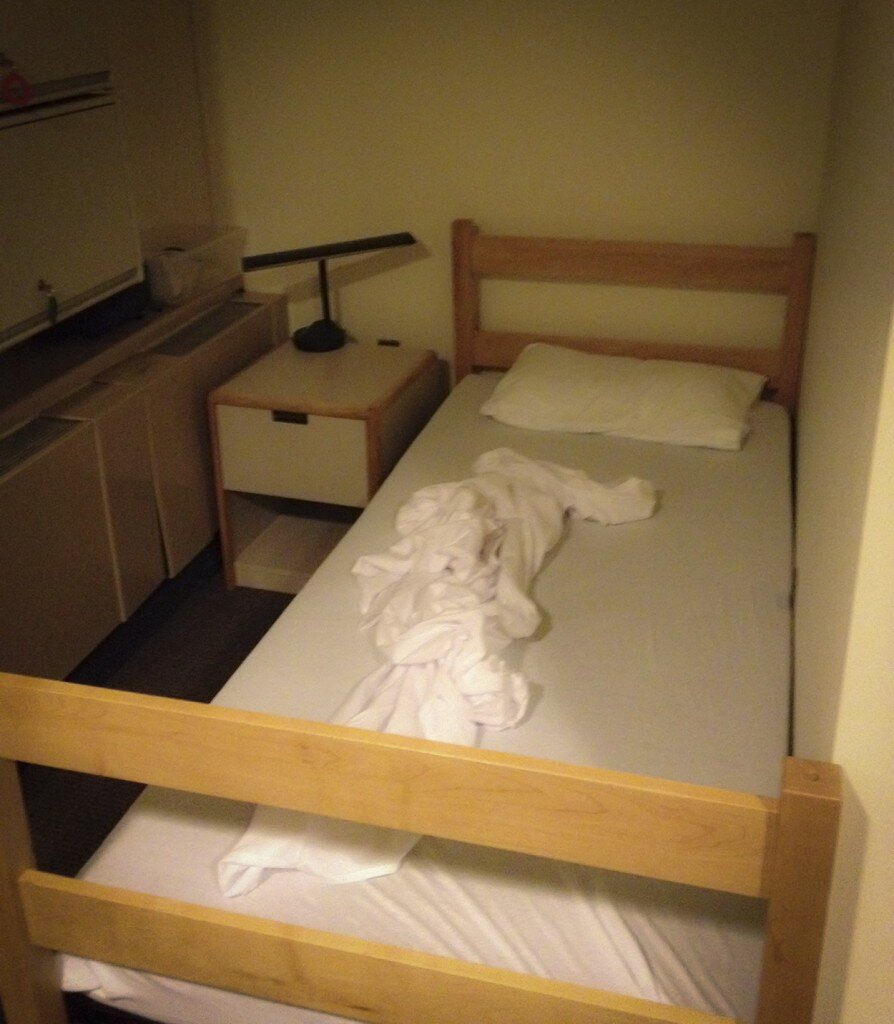
The term “resident” derives from the days in which the junior physicians would basically live in the hospital.
I got to work early, around 7:30 and, together with the neuroradiology fellow, read all of the studies from overnight. For the non-radiologists, that means that we looked at the all the images then dictated reports describing the findings their clinical significance. I had completed a total of twelve cases – a mix of head, neck, and spine CT scans – when the attending radiologist arrived at a little after 8:30. The normal procedure is for the attending to then look over each of the cases with you and discuss your findings and interpretation. He’ll either agree with your report or ask you to make changes before you electronically approve it – causing it to be send to him to look over one final time before giving it his final seal of approval. This process usually takes two to five minutes per case for CT scans as the attending is expected to not just review the images but to provide a teaching point or two as “payment” for the labor being done by the resident or fellow. It isn’t a perfect system, but with mutual respect and a commitment to patient care and learning/teaching it should be an effective way to get the work down in an equitable fashion while educating the next generation of radiologists.
The attending who arrived yesterday morning is a trainwreck. Though unquestionably brilliant, he is disrespectful, disorganized, condescending, and a generally horrible human being to spend any time with – at least in the hospital. Maybe out in the real world he kisses babies and is followed around by a singing swarm of bluebirds. Despite the fact that the fellow and I had arrived early and had already done all of the work, he angrily shuffled into the room – unkempt and distinguishable from a homeless person only by the white coat that he wore – and, after studiously ignoring the medical student, immediately made a derisive comment to the fellow about the fact that he would prefer to check email than do work. He proceeded to go through the fellow’s seven or so cases in less than five minutes. He then came over to my work area and continued with an endless stream of muttered comments including one of his perpetual favorites, that I wasn’t a “real” doctor because I couldn’t tell him some arbitrary bit of patient history that he asked for. We went through my cases in less than ten minutes, at which point he waddled out while making it clear that, as he always does, he was going to delete everything in our reports and start over from scratch generating his own documents which are universally derided throughout the hospital as being willfully incoherent.
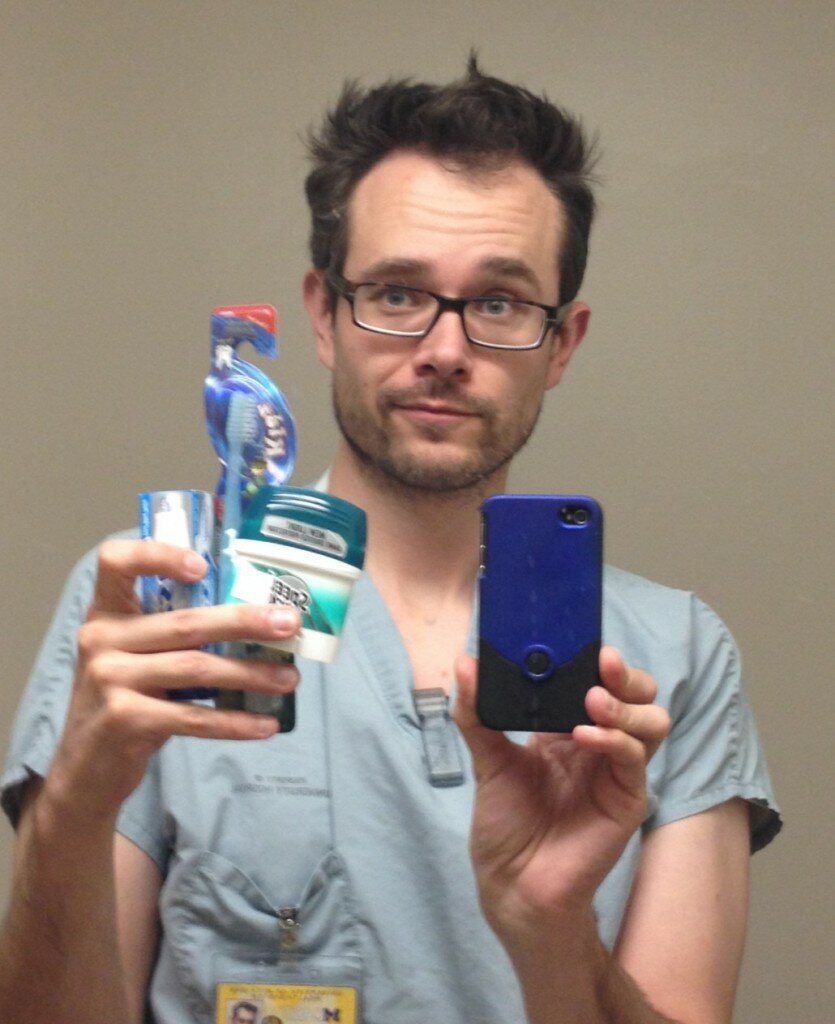
Things today are much more glamorous. Now if you’re stuck in the hospital overnight you can groom yourself with decadent single-serving cosmetics from the gift shop sold to you by Mennonite volunteers.
I could go on – detailing his insults and egregious behavior; but it doesn’t really matter. What does matter is that in my third month of residency, four years ago, I ended up working with him for what seemed like half of the days during my month on neuroradiology. I came into residency with a Ph.D. in neuroscience and left that month a wreck, convinced that I didn’t know anything about neuroimaging and, more importantly, not really caring about either neuro or about radiology in general.
Those scars faded and my confidence grew, slowly – but this final morning with him was a reminder that residency was, for the most part, not a supportive time in which nurturing mentor figures helped young doctors on a journey of self-actualization in which we matured into psychologically well-balanced healers. It was a multi-year process rich in abuse – both mental with the constant focus on our mistakes and shortcomings and precious little in the way of praise, and economic/physical in terms of hours worked and responsibilities offloaded by the more senior doctors. I was lucky to have a resident class made of wonderful people who constantly reminded each other that the damaged people were our bosses – not us, and that we were caring and talented and that we needed to persevere. By the end almost all of us believed in ourselves; but not every class is so lucky. There are residents who either leave radiology altogether; whose self confidence never recovers and thus who never really function as decent doctors; and, sadly, ones who mature into the same kind of abusive, conceited, and ultimately probably pretty miserable human being as the attending I worked with on my last day of residency.
Contrary to the mythology of the cushiness of radiology – our job is hard. The work never ends and we are constantly called upon to make life or death decisions with inadequate information and insufficient time – often after hours spent in socially isolating circumstances. That kind of stress can ruin a person. The very best of us broke at times – yelling at people for no more reason than that they were in the way; looking for solace in money, alcohol, or extra-marital affairs; or doing a mediocre job simply because it was just too hard to care about anything. Frankly, I’m surprised that more of us don’t turn out like this attending.
As bitter as it tasted, his toxicity was a good lesson to leave with. Modern health care is a system and it will take as much from its doctors as they will let it. Above all residency taught me that if I don’t take care of myself, no one else is going to; and that one’s humanity is too high a price to pay to be a productive physician.
For a long time I thought that my department needed to fire this attending – but the truth is that he might be the best teacher in the whole place.
—————————
P.S. I wrote this at three in the morning while working my final moonlighting shift as a resident at a local community hospital. The final case that I read, brought in five minutes before my shift ended, was what’s called a “double rule out.” These are unusually ordered by ER physicians without much of a clue what is going on with their patients and who really just want to painlessly exclude a few big life threatening illnesses despite the hefty radiation dose. In this case, however, I opened the study to see an unexpected aortic dissection (the same life-threatening condition that killed John Ritter) and, within a minute, was on the phone with the ordering physician providing information that will hopefully save this patient’s life. You don’t get to make those calls every day, but when you do it’s an awesome feeling that reminds you of the real reason that you put up with all the crap. It’s not the salary, it’s not the nurses, and it’s not the fancy call rooms – it’s the fact that on some days you get to make it possible for someone who would otherwise die to make it home.
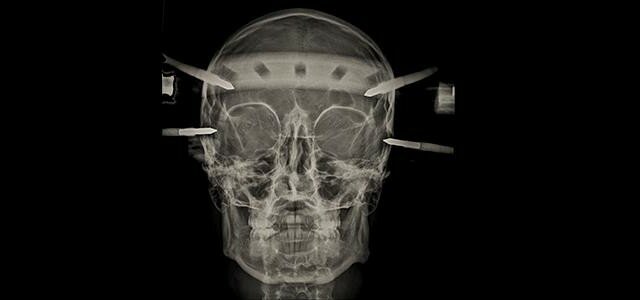
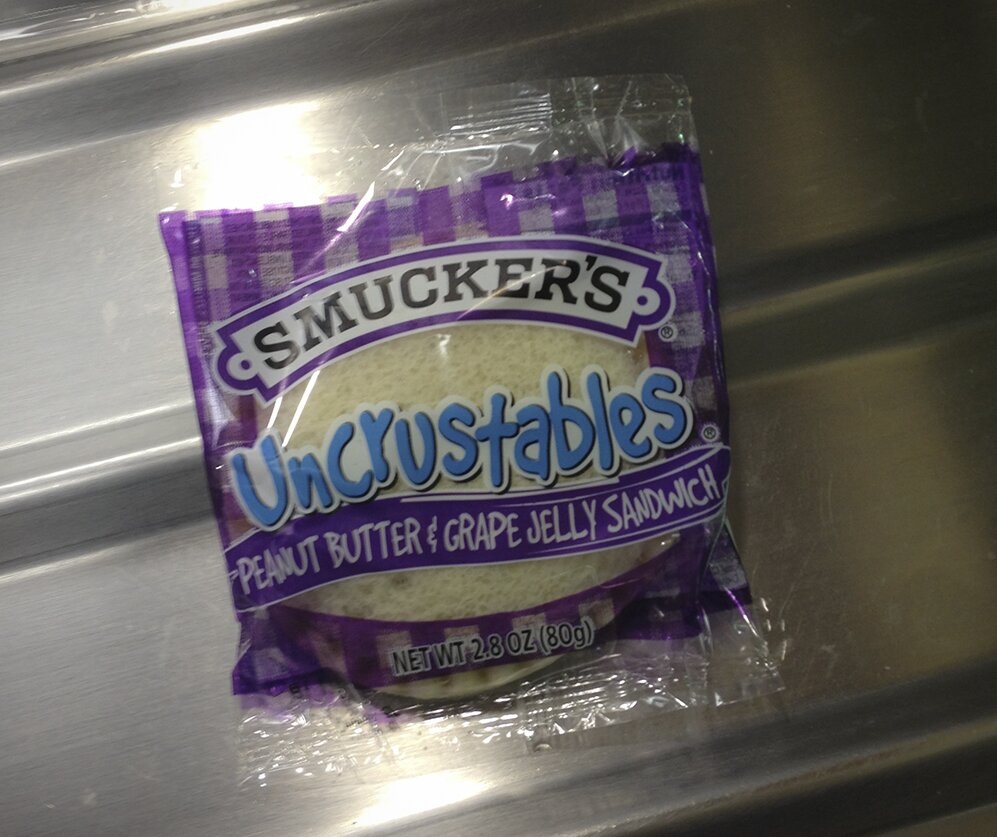

Congratulations! You’re going to make a great doctor–if the Uncrustables don’t kill you first.